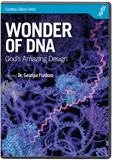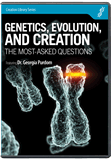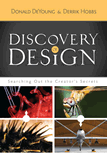Can Learned Behaviors be Inherited?
Epigenetic Inheritance
Since Mendel, most scientists have believed that acquired traits could not be inherited by offspring. This would mean that if an individual organism were to lose a tail or learn to avoid a predator, for example, these traits could not be passed to the offspring through the DNA. The young would be born with a tail and no innate knowledge of how to avoid a predator. With the discovery and applications of epigenetics in the last few decades, this is changing. A recent article in the peer-reviewed journal Cell discussed the epigenetic inheritance of learned traits in roundworms. Roundworms are not the only organism to exhibit transgenerational learning. Numerous others do as well or utilize some other method of epigenetic inheritance.
After a very short exposure to the sickening bacteria, however, the worms began avoiding them in favor of other, less-deadly bacteria.
The article from Cell discusses the roundworm Caenorhabditis elegans and its ability to transmit a learned trait from parent to offspring through four generations. Specifically, this trait is avoiding a disease-causing bacteria Pseudomonas aeruginosa. The roundworm will feed on other bacteria of this genus given a chance. However, when it ingests P. aeruginosa, the worm becomes very sick and sometimes dies. After a very short exposure to the sickening bacteria, however, the worms began avoiding them in favor of other, less-deadly bacteria.1 This avoidance did not become programmed into their epigenome until they had been exposed for around 24 hours.2 The avoidance was passed to the roundworm’s offspring for four generations, then lost.
This is hardly the first study of this type. In 2014, we reported on another study discussing this kind of epigenetic memory in mice. The researchers conditioned male mice to associate the scent of cherry blossoms with being electrically shocked. The mice learned that if they avoided the cherry blossom scent, they were not shocked. This learned avoidance behavior was also passed on to the shocked mice offspring and their young, even though the following generations were not exposed to the shock.3 Clearly, this epigenetic inheritance of learned behavior happens.
Epigenetics Definition and Inheritance
As a term, epigenetics was coined in the 1940s. It means outside or above the genome, and it refers to DNA’s external modifications that turn genes “on” and “off.” In practice, epigenetics is a type of genetic modification that does not change the sequence of the DNA strand—for example, methylating a DNA strand at a given nucleotide. Methylation means adding a methyl group (CH3) to the DNA strand. This trait has been associated with learned behaviors.4
Epigenetic inheritance can be induced in several different ways. In some cases, as noted above, it is a result of encountering a pathogen or a source of pain. In other instances, it is environmental stress. It is even known in humans: In the last year of WWII, the Germans induced a famine in the Netherlands. Calorie intake for adults was reduced to around 400 calories a day. During this famine, babies in utero carried induced epigenetic modifications due to their mother’s starvation. In turn, this made them susceptible to various diseases, also affecting the health of their children.5 While there is no learned behavior involved in this particular study, it does demonstrate that epigenetic inheritance is found across numerous species, and more examples are likely to be discovered as the field advances.
Origins Implications
A review of transgenerational learning literature stated that evolution could work well with transgenerational learning and epigenetic inheritance: “Traditionally, the only source of valid variation has been considered to be (random) genetic mutations, and heritability has been regarded as the genetically mediated transfer of traits through the germline. However, with the massive new insights into transgenerational effects quoted in this review, it is difficult to see why this view should pertain.”6 In other words, the author believes that transgenerational learning could be applied to evolutionary dogma seamlessly. Other evolutionists are less convinced. “Specifically, we have sought to demonstrate that there is a conflation in the EES [Extended Evolutionary Synthesis] literature between ultimate and proximate causation, and, as a consequence, a failure to address the issues of levels of organization within biology in ultimate terms.”7 So those attempting to harmonize evolution and transgenerational inheritance are not actually addressing the evolution question, because epigenetics is an effect of evolution, not a cause.
Lasting Consequences
These evolutionists concerned about transgenerational learning and epigenetics have a reason to be concerned.
These evolutionists concerned about transgenerational learning and epigenetics have a reason to be concerned. Transgenerational learning and epigenetics are a problem for “uphill evolution” because they only seem to last for a few generations before reverting to wild type. While this has yet to be extensively studied, in 2011 Dr. J. David Sweatt of Vanderbilt told BioScience magazine, “It’s reasonable to think that these transgenerational effects will have a half-life, so to speak, that they probably last for two, three, four generations and then are subject to reversing back to the original baseline state.”8 So far, the observable evidence backs up Dr. Sweatt’s statement. Epigenetic changes we know of last only a few generations if the stressors are removed.
Evolution’s guiding principle is that any beneficial change should be selected for. Therefore, according to the evolutionary model, natural selection should select for the roundworms mentioned above with the epigenetic changes that caused them to avoid disease. However, since this change is not permanent, in a few generations the trait will be devolved as it were, leaving the roundworm exactly as it was before the transgenerational learning. This does nothing to add genetic information and advance evolutionary progress towards a new species.
While transgenerational learning does nothing to help evolution, other aspects of epigenetic inheritance have been proposed to aid other aspects of the evolutionary worldview. Some evolutionists have postulated that epigenetic inheritance can help control speciation. They argue that, since epigenetic changes make the organism more fit for its environment, an accumulation of epigenetic changes could cause a new species.9 While creating a new species would not be objectionable to the creationist, it seems unlikely that epigenetic changes contribute to speciation, given that the knowledge we have indicates that epigenetic changes only last for a few generations.
While transgenerational learning does nothing to help evolution, other aspects of epigenetic inheritance have been proposed to aid other aspects of the evolutionary worldview.
However, these researchers went a step further. They proposed the possibility that epigenetic inheritance and transgenerational learning could serve as "an alternative inheritance system (emphasis theirs).”10 In other words, epigenetics can be seen as passing on information in much the same way as DNA. But again, given that current data indicate that epigenetic changes appear to only last a few generations, this seems unlikely.
While evolution-believing scientists struggle to explain the role of epigenetics in their worldview, it makes perfect sense in a Christian worldview. God designed organisms to adapt to their environment. Transgenerational inheritance and epigenetic inheritance enable animals to quickly adapt to changes in their environment, as noted above in mice and roundworms. Further, given that environmental conditions have the potential to persist for extended periods, it makes sense that these epigenetic changes can be passed to the offspring. However, it also makes sense that they would not be permanent changes, as the environment does periodically change. If epigenetic changes were permanent, organisms could not adjust to environmental changes. Therefore, epigenetics serves as an adaptive aid to organisms, but not as a mechanism of evolutionary change.
Footnotes
- Rebecca S. Moore, Rachel Kaletsky and Coleen T. Murphy, “Piwi/PRG-1 Argonaute and TGF-β Mediate Transgenerational Learned Pathogenic Avoidance.” Cell 177 (2019): 1827-1841, https://doi.org/10.1016/j.cell.2019.05.024.
- Ibid.
- Brian G. Dias and Kerry Ressler, “Parent olfactory experience influences behavior and neural structure in subsequent generations.” Nature Neuroscience 17 (2014): 89-96, https://www.nature.com/articles/nn.3594.
- Junko A. Arai and Larry A. Feig, “Long-Lasting and Transgenerational Effects of an Environmental Enrichment on Memory Formation.” Brain Research Bulletin 85, no. 1-2 (2011): 30-35, https://doi.org/10.1016/j.brainresbull.2010.11.003.
- T.J. Roseboom et al., “Transgenerational effects of prenatal exposure to the Dutch famine on neonatal adiposity and health in later life.” BJOG 115, no. 10 (2008): 1243-1249, https://doi.org/10.1111/j.1471-0528.2008.01822.x.
- Per Jensen, “Transgenerational epigenetic effects on animal behavior.” Progress in Biophysics and Molecular Biology 113, no. 3 (2013): 447-454, https://doi.org/10.1016/j.pbiomolbio.2013.01.001.
- Thomas E. Dickins and Qazi Rahman, “The extended evolutionary synthesis and the role of soft inheritance in evolution.” Proceedings of the Royal Society B 279 (2012): 2913-2921, https://doi.org/10.1098/rspb.2012.0273.
- Tabitha M. Powledge, “Behavioral Epigenetics: How Nurture Shapes Nature.” BioScience 61, no. 8 (2011): 588-592, https://academic.oup.com/bioscience/article/61/8/588/336969.
- David W. Pfennig and Maria R. Servedio, ‘The role of transgenerational epigenetic inheritance in diversification and speciation.” Non-Genetic Inheritance 1, (2013): 17-26, https://doi.org/10.2478/ngi-2013-0002.
- Ibid.
Recommended Resources

Answers in Genesis is an apologetics ministry, dedicated to helping Christians defend their faith and proclaim the good news of Jesus Christ.
- Customer Service 800.778.3390
- © 2024 Answers in Genesis






